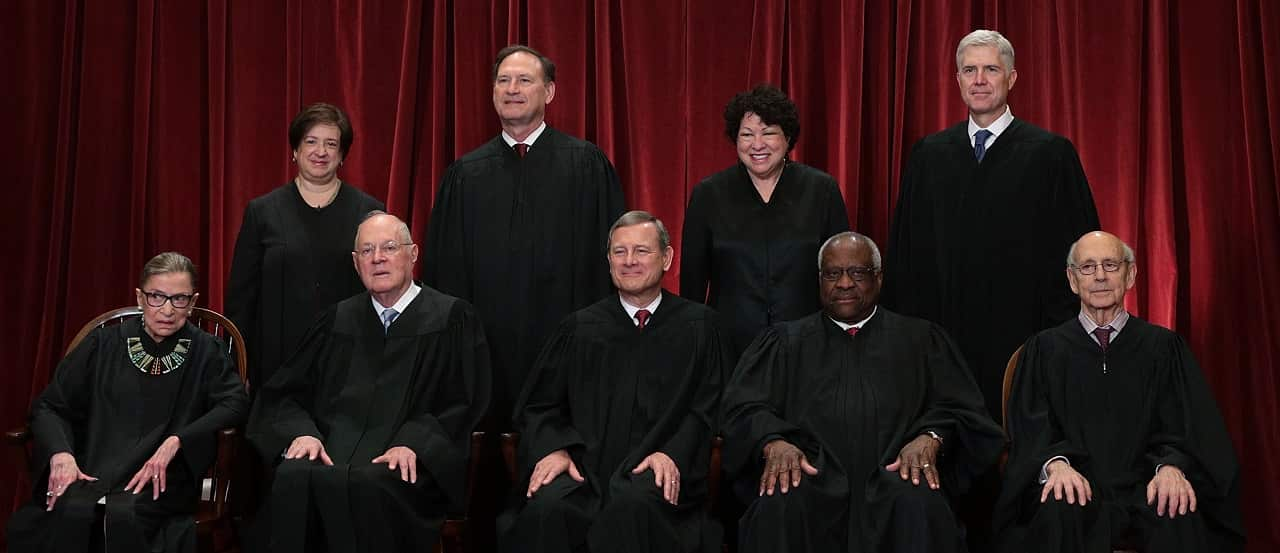Chief Justice John Roberts, reading for the majority, spoke clinically. Justice Stephen Breyer followed, working his way through his dissent mildly and analytically.
Then it was Justice Sonia Sotomayor’s turn.
Steely and unwavering, she began: “The United States of America is a nation built upon the promise of religious liberty. Our founders honored that core promise by embedding the principle of religious neutrality in the First Amendment.”
The crowded courthouse fell silent.
In upholding President Donald Trump’s ban on travel from several mostly Muslim countries, Sotomayor continued, the Supreme Court had failed to “safeguard that fundamental principle.”

For the next 20 minutes, Sotomayor remained resolute as she delivered an extraordinarily scorching dissent, skewering the court’s decision and condemning the ban as “harrowing” and “motivated by hostility and animus toward the Muslim faith.”
The remarkable dissent was delivered by a woman who has championed her own upbringing as an example of the American dream. Sotomayor, whose parents moved from Puerto Rico during World War II, was raised in a housing project in New York City. Her father did not speak English and her first language was Spanish. But determined to become a judge, she would go on to attend Princeton University and become the Supreme Court’s first Latina justice.
Sotomayor once said that “personal experiences affect the facts that judges choose to see.” She again drew upon that idea in her dissent on Tuesday, in which she accused the majority of “ignoring the facts, misconstruing our legal precedent, and turning a blind eye to the pain and suffering the proclamation inflicts upon countless families and individuals, many of whom are United States citizens.”
That was the crux of Sotomayor’s damning conclusion: The president’s ban is “inexplicable by anything but animus,” and to argue anything else is to divorce oneself from the facts.
The court voted 5-4, with the more conservative justices in the majority and with Breyer writing his own dissent. Justice Ruth Bader Ginsburg joined Sotomayor’s.
Sotomayor chose her words carefully and sharply, at one point charging that Trump’s policy “now masquerades behind a facade of national security concerns.”
But one of her most striking decisions was to repeat the words of the president himself. Citing more than a dozen instances in which Trump tweeted or issued anti-Muslim sentiments, it was his words, not her own, that rang out from the bench.
She continued down the list for minutes, reading one example after another.
“On December 21, 2016, President-elect Trump was asked whether he would ‘rethink’ his previous ‘plans to create a Muslim registry or ban Muslim immigration,'” Sotomayor said. “He replied: ‘You know my plans. All along, I’ve proven to be right.'”
“'People, the lawyers, and the courts can call it whatever they want, but I am calling it what we need and what it is, a TRAVEL BAN!'” she read, recounting the president’s 2017 tweet.
“Islam hates us,” she read, citing another example, and added another: “We’re having problems with Muslims coming into the country.”
The conservative justices, staring unblinkingly ahead, remained stone-faced.
She continued that Trump had never disavowed any of his statements regarding Islam and thus had failed “to correct the reasonable perception of his apparent hostility toward the Islamic faith.”
In another powerful passage, Sotomayor drew parallels between the decision and Korematsu v. United States, the 1944 ruling that upheld the detention of Japanese-Americans during World War II.
“As here, the government invoked an ill-defined national security threat to justify an exclusionary policy of sweeping proportion,” she said. “As here, the exclusion was rooted in dangerous stereotypes about, inter alia, a particular group’s supposed inability to assimilate and desire to harm the United States.”
Sotomayor continued that “our nation has done much to leave its sordid legacy behind” in the years since Korematsu. But, she reasoned, “it does not make the majority’s decision here acceptable or right.”
“By blindly accepting the government’s misguided invitation to sanction a discriminatory policy motivated by animosity toward a disfavored group, all in the name of a superficial claim of national security,” she said, “the court redeploys the same dangerous logic underlying Korematsu and merely replaces one ‘gravely wrong’ decision with another.”

